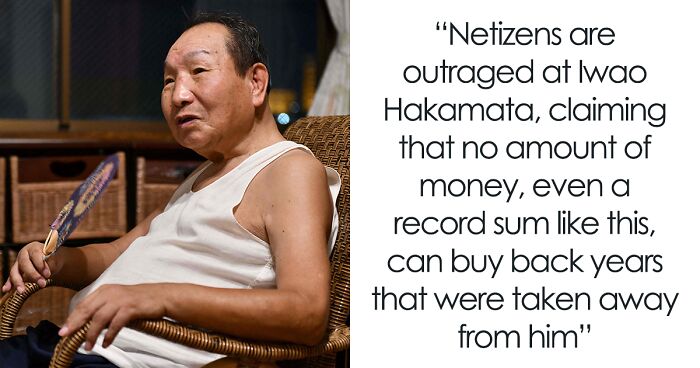
Longest-Serving Death Row Inmate To Get Large Payout After Being Found Not Guilty 56 Years Later
Imagine being put on death row for a crime you did not commit and spending nearly 60 years imprisoned. That’s more than some people live! And then, when both your physical and mental health deteriorate after your whole life is wasted behind bars—proven to not be guilty.
Yes, that’s the reality of former professional boxer Iwao Hakamata. In 1968, he was accused of unaliving his boss and their family and was placed on death row. After spending 56 years being considered a perpetrator, he was found not guilty and was ordered to receive a large sum of money for every single day of imprisonment. But what’s the point of money when most of your life has been wasted?
Imagine being accused of a crime you did not commit and having to spend nearly 60 years behind bars for it
Image credits: Kazuhiro NOGI / AFP
That’s something that happened to former professional boxer Iwao Hakamata—in 1966, he was placed on death row for the murder of his boss and their family
The world’s longest-serving death row inmate was proven to not be guilty after 56 years and gets a record payout for it.
In 1968, then 32-year-old Japanese professional boxer Iwao Hakamata was sentenced to death for the murders of the man’s boss and his family in 1966. The crime was dubbed the Hakamata Incident.
Image credits: Kazuhiro NOGI / AFP
Then, in October of 2024, 56 years after his arrest, I. Hakamata’s innocence was confirmed. In 2025, the court awarded him 217 million yen ($1.45 million), which equates to $25,892 for every year and $83 for each day of his imprisonment.
Yet, many people online brought attention to the fact that even this record payout for a criminal case in Japan doesn’t justify the lifetime of imprisonment the man had to suffer for something he didn’t even do. As one netizen said—there’s not enough money in the world to pay for the 56 years that were taken away from him.
Image credits: Anna Tolipova / Freepik (not the actual photo)
The reason he wasn’t executed throughout this record death row sentence was because the Minister of Justice didn’t sign his death warrant, suspecting that the conviction was uncertain. Yet, he was kept in solitary confinement for 30 years. He was able to serve another part of his sentence at home due to poor health, and law enforcement concluded that due to his age, he was a low risk for escape.
Back in the day, Hakamata was arrested based on his confession and a tiny amount of blood and gasoline found on a pair of pajamas he owned. Yet, during his trial, the man retracted his confession, explaining that the police used harsh violence against him to obtain it. Ever since then, he has always claimed he was innocent, filing for various retrials that were denied—until 2014.
While at first, he confessed to the crime, he later said that he was actually forced to do so by police violence and has claimed that he wasn’t guilty ever since
Image credits: freepik / Freepik (not the actual photo)
That year, a judge ordered a retrial with new evidence, suggesting his conviction may have been based on fabricated accusations by investigators.
One of the biggest discussion points regarding his innocence was the clothing that investigators claimed he wore during the crime. The blood that was found on his clothes turned out not to be a DNA match to the man. Also, the trousers prosecutors submitted as evidence were said to be too small for Hakamata, as they did not fit when he tried them on.
Yet, it took quite a long time, and many denied retrials for the charges to be dropped, which resulted in the man spending 56 years imprisoned
Image credits: BillionPhotos / Freepik (not the actual photo)
Finally, in 2024, during a ruling, which many of I. Hakamata’s supporters came to watch, a judge ruled the man to be acquitted. Unfortunately, the man himself was not able to attend the ruling due to his deteriorated mental state.
Well, at least he got to see his name cleared before the end of his life. Yet, it doesn’t change the fact that so many years were wasted paying for a crime that he did not commit. And now, his achievements and legacy in the boxing arena, unfortunately, will always be overshadowed by his imprisonment. Just as people online have said, no amount of money will ever be enough to cover such an injustice.
Granted, he was paid $1.45 million by the court for this, but as many netizens pointed out—no money can bring back the years he was forced to waste
Image credits: www.facebook.com
Image credits: www.facebook.com
Image credits: www.facebook.com
Image credits: www.facebook.com
Image credits: www.facebook.com
Image credits: www.facebook.com
Image credits: www.facebook.com
Image credits: www.facebook.com
Image credits: www.facebook.com
Image credits: www.facebook.com
Image credits: www.facebook.com
Image credits: www.facebook.com
Image credits: www.facebook.com
Image credits: www.facebook.com
Image credits: www.facebook.com
Image credits: www.facebook.com
Image credits: www.facebook.com
Poll Question
What do you think about the compensation Iwao Hakamata received for his wrongful imprisonment?
It's fair given the circumstances
No amount of money can justify 56 years
He should have received more
I'm not sure
He was on death row for so many years and the thing about death row in Japan is you never know when it's your time. Just the thought of living that every day...
Huge amount of money could almost be impossible to earn, but going back in time is straight up impossible.
He was on death row for so many years and the thing about death row in Japan is you never know when it's your time. Just the thought of living that every day...
Huge amount of money could almost be impossible to earn, but going back in time is straight up impossible.

 Dark Mode
Dark Mode 

 No fees, cancel anytime
No fees, cancel anytime 



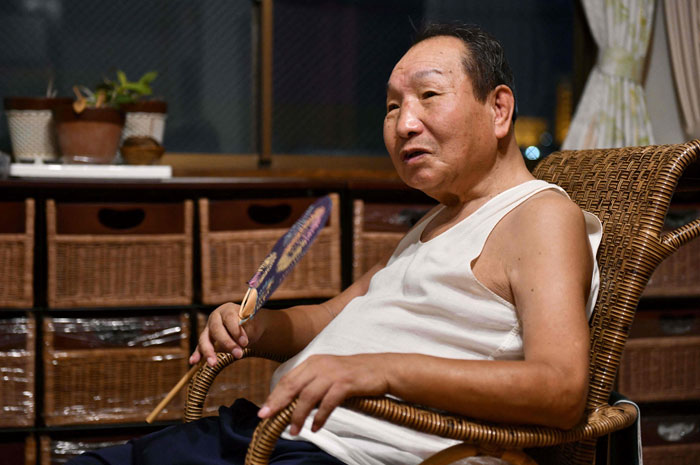
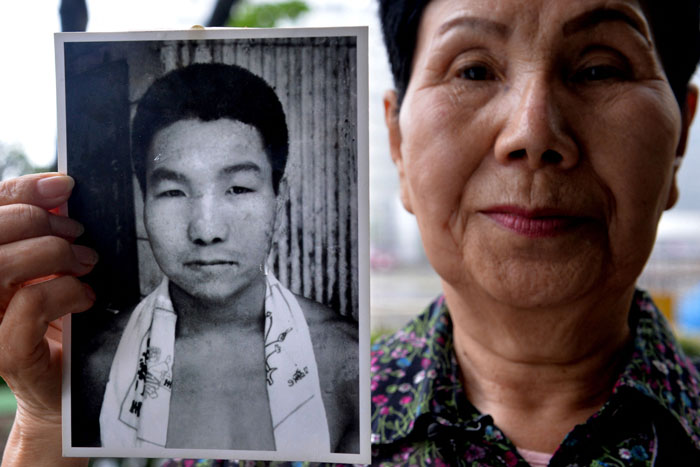

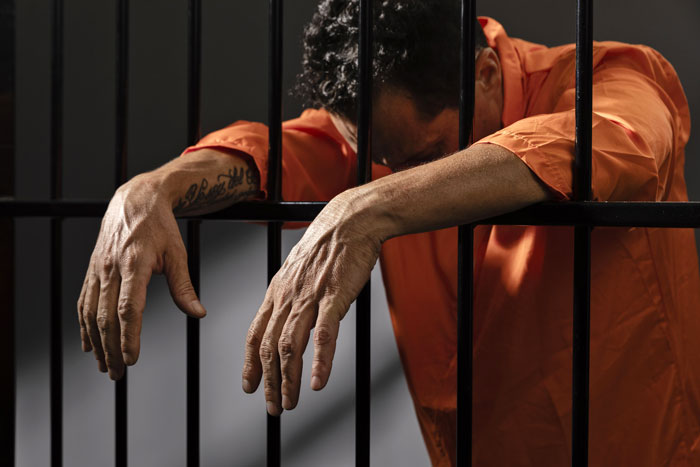










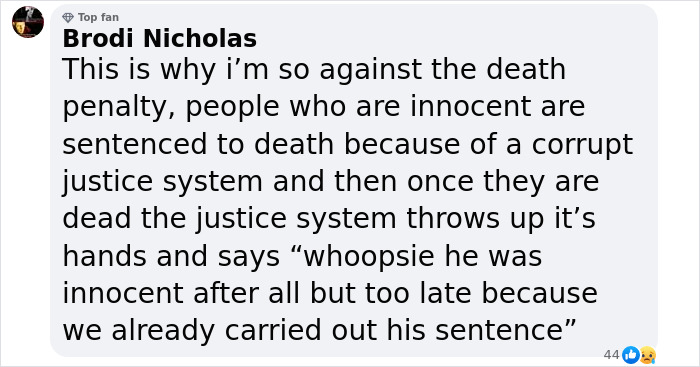
















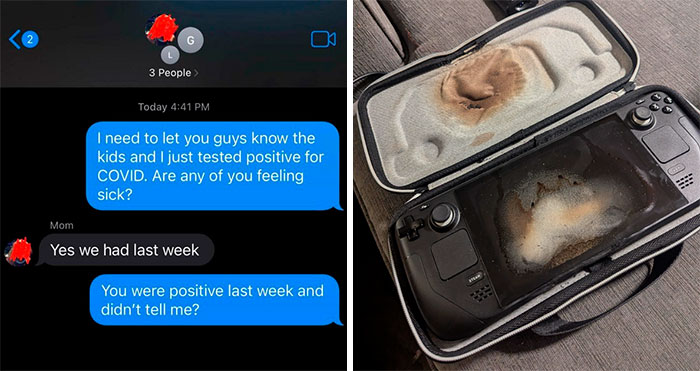

















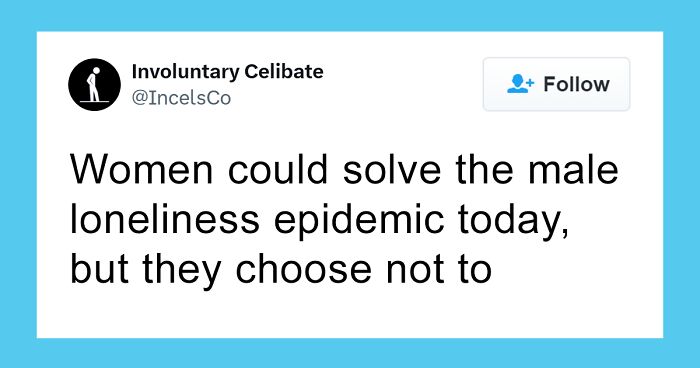








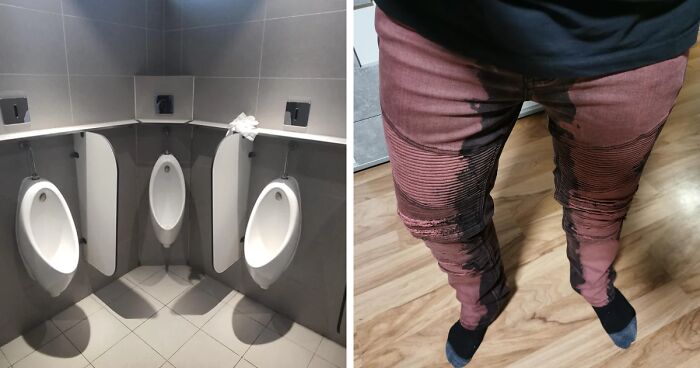







42
6